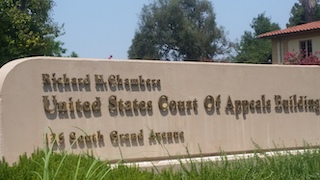The Sixth Amendment to the U.S. Constitution guarantees a criminal defendant the right to counsel. This familiar right is ingrained into the awareness of most people because in the Miranda warnings a police officer may give, the admonition includes the words, “you have the right to an attorney. If you cannot afford an attorney, one will be appointed for you.”
The Sixth Amendment also includes a less well-known right: the right to represent oneself. This privilege is equally as important. Indeed, “[t]he Supreme Court has stated that even if ‘the right of self-representation is a right that if exercised usually increases the likelihood of a trial outcome unfavorable to the defendant, ‘it merits the same vigilant protection as other constitutional rights.’” United States v. Gerritsen (9th Cir., 2009) 571 F.3d 1001, 1008 (quoting McKaskie v. Wiggins (1984) 465 U.S. 168, 177, n. 8).
“We should be careful then, not to disregard this constitutional right because ‘[w]hen the administration of a criminal case . . . is hedged about as it is by the Constitutional safeguards for the protection of an accused, to deny him in the exercise of his free choice the right to dispense with some of these safeguards . . . is to imprison a man in his privileges and call it the Constitution.’” Faretta v. California (1975) 422 U.S. 806, 815.
It is against this legal framework that the United States Court of Appeal for the Ninth Circuit, sitting in Seattle, Washington, heard the case of United States v. Jason Paul Schaefer, a case arising in U.S. District Court in Oregon. As the reader of this article may be from California, it is worth noting that because this case decides issues of constitutional rights, the court’s ruling affects those in California, as California belongs to the Ninth Circuit.
 U.S. Ninth Circuit Court of Appeals Pasadena
U.S. Ninth Circuit Court of Appeals Pasadena
In April 2017, Mr. Schaefer, who had a long history of mental illness, was seen pouring chemicals on the pavement outside his apartment. Neighbors became concerned due to the odor and Schaefer’s odd behavior. Police arrived and Schaefer, wearing body armor, threatened to kill the apartment complex manager. Schaefer was arrested and placed on a mental health hold. Police discovered he had a prior conviction in New York for being a felon in possession of body armor and he was convicted for the same thing in Oregon.
Later, the same year, the FBI received a tip that Schaefer had purchased a variety of chemicals. The FBI investigated this and realized such chemicals could be used to make an improvised explosive device (IED).
The FBI then obtained a search warrant for Schaefer’s home and storage unit. They coordinated with his probation officer to have Schaeffer attend a probation meeting away from his home so the FBI could avoid problems with him while executing the warrant.
However, Schaeffer returned home while officers were still at his house, yelling “Oh, great. Now we’re all going to die” and sped away in his car.
Officers gave chase to arrest him and eventually stopped him. In response, Schaeffer grabbed a cigarette package in his car that contained triacetone triperoxide (“TATP”) and threatened the officers, saying “I’ll do it. I’ll do it. I’ll blow us all up.” Schaeffer then lit the cigarette package, causing an explosion. As a result of the explosion, Schaeffer lost three fingers and one of the officers suffered a concussion and temporary deafness.
Schaeffer was indicted by a grand jury for assault on a federal officer (two counts) and using an explosive to commit a federal felony. During pre-trial proceedings that followed, the district court appointed, and Schaeffer terminated, at least six attorneys. Several of the attorneys moved to withdraw because of conflicts of interest wherein Schaeffer insisted upon filing frivolous motions.
With one attorney, Schaeffer filed a complaint against the attorney with the State Bar and the attorney withdrew.
Schaeffer was then appointed Lisa Ludwig as his fifth attorney in November 2018, however, she advised the court that she was not prepared for trial in January 2019 and Schaeffer objected to a continuance, saying he did not want to waive his speedy trial right.
Right before trial, however, Schaeffer requested to represent himself and the court agreed.
During trial, however, after the jury had been selected, Schaeffer asked to have counsel appointed again. The judge denied the request, finding that Schaeffer had engaged in gamesmanship and was attempting to manipulate the legal proceedings by having his prior counsel appointed as counsel. That counsel would then request a continuance which the judge would deny since the jury was already selected. Schaeffer could then file a petition for writ of habeas corpus to reverse the judgement if he lost, arguing ineffective assistance of counsel. Schaeffer even admitted that this was his plan.
After the judge denied the request, the jury convicted Schaeffer of all counts and the judge sentence him to forty years in federal prison.
On appeal, the United States Court of Appeal for the Ninth Circuit affirmed, finding that the district court judge did not abuse his discretion in denying Schaeffer’s request for counsel because the delay was defendant’s fault and there was no legitimate reason for the delayed request, citing to authority under United States v. Thompson (9th Cir., 2009) 587 F.3d 1165, 1174.
We present this summary to show an example of when a judge can deny the request for counsel because some potential clients and even clients of ours have expressed an opinion that the court always must grant such a request and this is simply untrue.
The citation for the United States Court of Appeal for the Ninth Circuit ruling discussed above is United States v. Jason Paul Schaefer (9th Cir., 2021) F. 4th.
For more information about the right to counsel, please click on the following articles:
 U.S. Ninth Circuit Court of Appeals Pasadena
U.S. Ninth Circuit Court of Appeals Pasadena